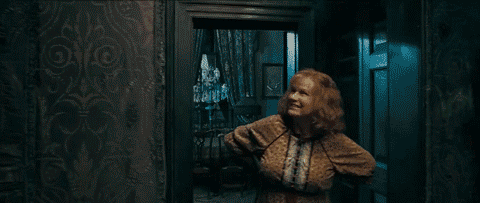The House-Elf’s Tale
The Harry Potter series has a lot to say about prejudice and equality, but most of these messages appear as metaphors for issues in the Muggle world. We never saw characters of color undergo racial prejudice. Magic appeared to put men and women on more or less equal footing. We didn’t know there were any non-heterosexual characters until J.K. Rowling told us Dumbledore was gay.
It’s always disappointing to see the experiences of minority groups excluded, and many minority readers have expressed their frustration that their issues weren’t included in the Potter texts. Perhaps the differences between wizards and Muggles were so strong that within wizarding society, differences in race, gender, and sexuality became less important; however, it seems unlikely that they would have been eradicated entirely. Whether or not these differences actually caused issues in the magical world, the fight against prejudice and for equality throughout the Potter series can be used as a metaphor for the problems we face in the Muggle world every day.
One of the series’s more nuanced metaphors is the house-elves’ journey to equality. Many have debated about exactly what the house-elves were supposed to represent. People have made theories about everything from housewives to slaves in the American South. I’m in the housewife camp for many reasons beyond the similarities in name.
We know Rowling used quite a few historical references throughout the series, and I think SPEW is one of them. In 1859, three British women established the “Society for Promoting the Employment of Women.” The society still exists today, although they’ve changed their name a couple of times.
One thing I think is key to understanding the house-elves as housewives is the fact that they want to do housework. Could centuries of enslavement be deluding house-elves into believing they like their work? Maybe, but I think we have to ask ourselves the same question about housewives. Housework has been women’s work for quite a while – does this mean that all women who choose to be housewives are deluded? I don’t think so. Promoting gender equality requires listening to the experiences of women and believing what they have to say, and house-elf liberation is the same.
SPEW failed because Hermione didn’t listen to the experiences of house-elves. When she, Ron, and Harry were speaking with Winky during “The Madness of Mr. Crouch,” the Hogwarts house-elves were embarrassed by Winky’s uncontrollable sobbing. They covered her with a large checked tablecloth, and Hermione asked them why they don’t try to cheer her up.
Begging your pardon, miss…but house-elves has no right to be unhappy when there is work to be done and masters to be served.” (538)
I think Hermione is rightfully upset that any creature would devalue their own emotions like this, but her solutions ended up being counterproductive. She told the house-elves they had a right to be unhappy and that they didn’t have to do what they’re told; the house-elves responded by rushing them out of the kitchen. In Order of the Phoenix, she hid hats and socks throughout the Gryffindor common room, hoping the unsuspecting house-elves would pick them up while they were cleaning. Rather than considering themselves free, the house-elves refused to continue cleaning the Gryffindor common room.
Whether or not the house-elves would have benefited from freedom, they didn’t want it, and Hermione tried to convince the house-elves she knew what was best for them. She didn’t even listen to the one house-elf she knew who wanted to be free.
Dobby likes work, but he wants to wear clothes and he wants to be paid, Harry Potter. . . . Dobby likes being free!” (378)
Although house-elves have magical capabilities beyond their housework skills, Dobby sought another position performing housework for a wizarding family. For Dobby, being free meant getting paid for his work.
Like house-elves, stay-at-home mothers receive no pay for the work they put in. The average stay-at-home mother may work as many as 97 hours a week on cleaning, household management, childcare, and much more.
Feminism and the gender equality movement hope to give women choices and free them from societal expectations and stereotypes. While money may not lead to happiness, it can provide a pathway to freedom. If Dobby had a stockpile of wages from his time at Malfoy Manor, maybe he would have explored a new profession. Let’s hope that the work Hermione did in the Department for the Regulation and Control of Magical Creatures gave house-elves the choice to explore all of their options, just as women break new barriers in the Muggle world every day.
Do you think house-elves work as a metaphor for housewives, or is there a more fitting interpretation? What are the other feminist messages in the Harry Potter series?

